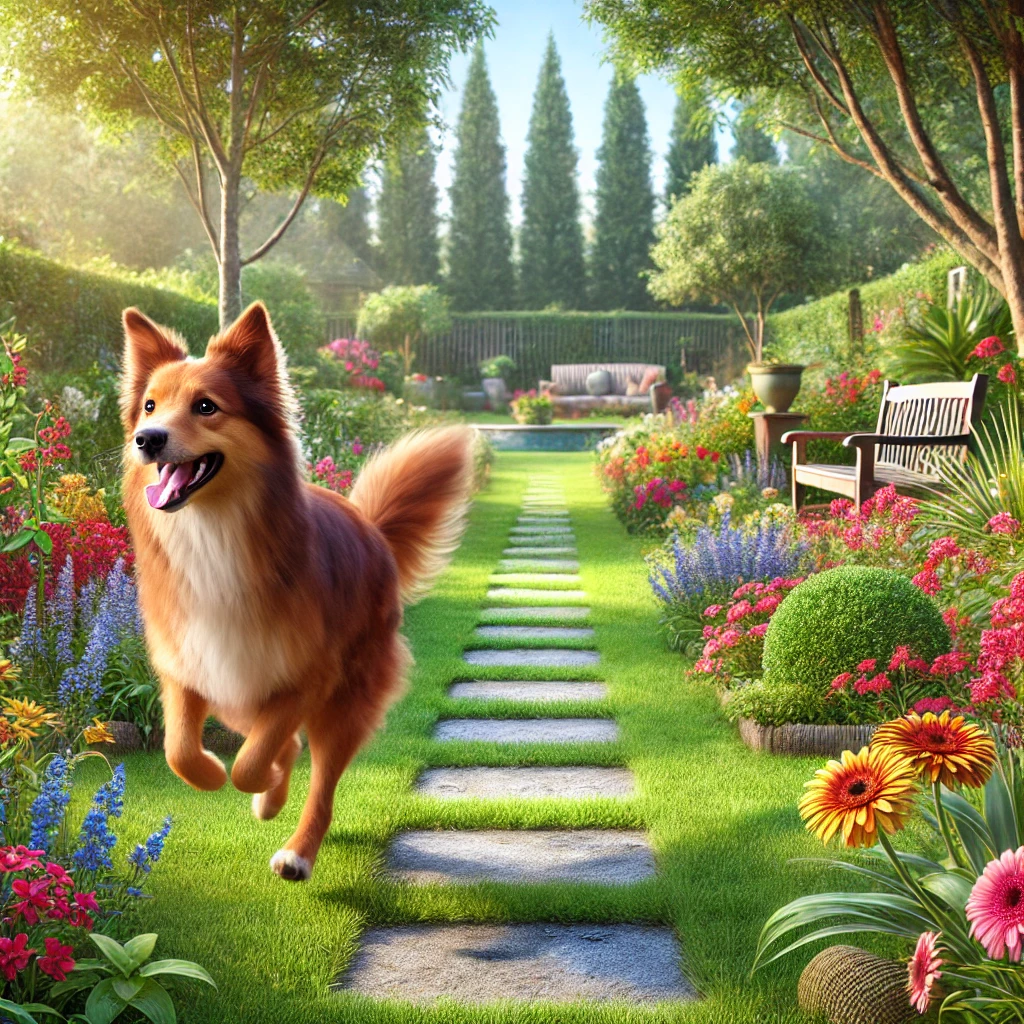Creating a dog-friendly garden means your furry mate has a safe, fun outdoor space to explore. By adding dog-friendly plants, secure fencing, and cool features, you can design a garden both you and your pup will love.
Planning Your Dog-Friendly Garden
Consider Your Dog’s Needs
Think about your dog’s size, energy level, and personality. Bigger dogs might need more space to zoom around, while smaller ones might prefer cozy play areas.
Safety First
Make sure your garden is a safe zone. Ditch any toxic plants, secure the fencing, and remove potential hazards to keep your pup protected.
Dog-Friendly Plants
Non-Toxic Plants
Go for non-toxic plants like marigolds, sunflowers, and roses. Steer clear of lilies, azaleas, and daffodils, which can be harmful if nibbled on.
Hardy and Durable Plants
Choose tough plants that can handle your dog’s playful antics. Lavender, rosemary, and ferns are both beautiful and resilient.
Creating Safe Boundaries
Secure Fencing
Install sturdy fencing to keep your dog safely inside. Ensure it’s tall enough and free of gaps where your dog could sneak out.
Gates and Entrances
Use self-closing gates to prevent escapes. Regularly check all entrances for weak spots.
Designated Play Areas
Digging Zones
Create a digging zone where your dog can dig to their heart’s content. Fill it with sand or soft soil and bury toys to encourage use.
Paths and Trails
Design pathways and trails for your dog to explore. Use durable materials like gravel, flagstone, or mulch for easy-to-navigate routes.
Providing Shade and Shelter
Shady Spots
Set up shady areas for your dog to chill and cool down. Plant trees, install awnings, or use shade cloths to create comfy spots.
Dog House or Shelter
Consider adding a dog house or a sheltered area for your dog to escape the sun or rain. Make sure it’s well-ventilated and the right size.
Water Features
Drinking Stations
Set up a drinking station with fresh water available all the time. Use spill-proof bowls or a pet water fountain to keep it clean.
Splash Pools
A shallow splash pool is a great way for your dog to cool off on hot days. Ensure it’s easy for your dog to get in and out safely.
Engaging and Enriching Elements
Toys and Activities
Include toys and activities to keep your dog entertained. Puzzle toys, fetch toys, and agility equipment provide mental and physical stimulation.
Sensory Garden
Create a sensory garden with various textures, scents, and sounds. Plant herbs like mint and thyme, use different ground coverings, and add wind chimes for auditory enrichment.
Regular Maintenance
Clean Up
Regularly clean up after your dog to keep the garden tidy. Dispose of waste promptly and sanitise areas as needed.
Inspect for Hazards
Frequently inspect your garden for potential hazards like sharp objects, fence holes, or toxic plants. Fix any issues immediately.
Conclusion
Designing a dog-friendly garden means considering your dog’s needs and safety. By using non-toxic plants, secure boundaries, and engaging features, you can create an outdoor haven where your dog can play, explore, and relax.







